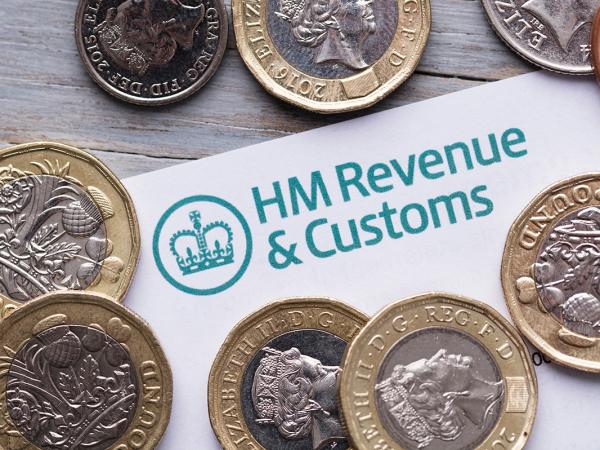HICBC: Moving in with a partner
If you move in with your partner, this can trigger the high income child benefit charge (HICBC). We explain how this works and provide information on completing the HICBC charge section of your self assessment tax return in these cases. This is a complex area. We aim to provide a general overview, but would recommend that you take specific advice if you move in with a child benefit claimant during the year and become liable to the HICBC.

Content on this page:
Effect on liability to the HICBC
If you are in a relationship with another person during a tax year and:
- one (or both) of you has adjusted net income of over the relevant threshold for that year (£50,000 for tax years up to and including 2023/24, and £60,000 from 2024/25), and
- one (or both) of you claims child benefit in that year,
then you will need to determine for each week whether that other person is your ‘partner’ for HICBC purposes.
As we explain in more detail at HICBC: issues on separation, you are someone else’s partner for this purpose if, for a given week, either:
- you are married (or in a civil partnership) and not separated under a court order or separated in circumstances likely to be permanent, or
- you are not married (or in a civil partnership) but you are living together as if you are married.
It is therefore often (though not always) the point when you move in with a partner which will mean you start to be treated as partners for the HICBC.
Calculating the HICBC
Calculating the HICBC when you have moved in with a partner during the tax year can be quite complicated. In any situation where you are unsure, we recommend you seek advice.
There are several different scenarios that might arise when you move in with a partner, depending on your circumstances. We explain some possible scenarios below.
Note that the person who is the ‘child benefit claimant’ is the person who made the claim. The HICBC rules first look at the claimant (and any partner they may have) in determining who is liable to pay the charge. The claimant may not be the same as the person who receives the payments – for example, if they are paid into a different bank account, such as one of an ex-partner, or joint bank account.
Each of the below scenarios assume that you become partners for HICBC purposes from the point you move in with each other, and that you remain so for the remainder of the tax year.
For the purposes of these scenarios, the relevant threshold is £50,000 for tax years up to and including 2023/24, and £60,000 from 2024/25.
Scenario A
Your adjusted net income for the year is less than the relevant threshold, but your partner’s is more than that threshold. You are the child benefit claimant for the full year. In this case, the child benefit entitlement for the weeks of the year after moving in together is used to calculate the HICBC payable by your partner, based on their adjusted net income for the full year.
Scenario B
The same as Scenario A, except that your partner is the child benefit claimant for the full year. In this case, the child benefit entitlement for the full year is used to calculate the HICBC payable by your partner, based on their adjusted net income for the full year. The moving in date is irrelevant.
Scenario C
Your adjusted net income for the year is more than the relevant threshold, but your partner’s is less than that threshold. You are the child benefit claimant for the full year. In this case, the child benefit entitlement for the full year is used to calculate the HICBC payable by you, based on your adjusted net income for the full year. The moving in date is irrelevant.
Scenario D
The same as Scenario C, except that your partner is the child benefit claimant for the full year. In this case, the child benefit entitlement for the weeks of the year after moving in together is used to calculate the HICBC payable by you, based on your adjusted net income for the full year.
Other scenarios
More complex scenarios may include the following:
- Both you and your partner’s adjusted net income exceeds the relevant threshold for the year.
- Each person in a relationship claims child benefit for their own child(ren).
- The child benefit payments stop or start in the year, or they are backdated.
- There is an ex-partner prior to the move-in date with adjusted net income for the year of more than the relevant threshold.
- Contributions are made towards the upkeep of a child from an ex-partner.
- You separate before the end of the tax year.
As already mentioned, we recommend you get tax advice if you have moved in with a partner during the year and are subject to the HICBC.
Income changes
As highlighted above, your income level for HICBC is always assessed based on the entire tax year – not simply your income for the period during which child benefit is taken in account when calculating the charge, if that is different.
The below example shows how this can lead to counter-intuitive results.
Completing your tax return
At the time of writing, the current self assessment tax return forms (both the online version and the paper version) and accompanying guidance notes do not clarify how you should complete the tax return if you are liable to the HICBC and you have moved in with your partner during the tax year.
In some cases, we are aware that answering the questions in the relevant sections literally may lead to an incorrect HICBC being calculated by HMRC or by third-party software. For example, the child benefit entitlement for the full year may be taken into account in the calculation, when only in fact only part-year entitlement should be used. You should therefore independently check that the HICBC which has been calculated for you is correct by following the guidance on this page.
If you feel the HICBC which has been calculated is incorrect, we suggest you contact HMRC.
You may decide to complete the boxes on the return in such a way that HMRC’s online systems (or third-party software) calculates the HICBC which you believe to be correct, even if that involves interpreting the boxes in a non-literal way. However, if you choose to do this, we recommend you seek advice first and provide a full disclosure of how you have interpreted the relevant boxes in the ‘Any other information’ section of the return.
Strictly speaking, you cannot appeal a calculation of your tax liability that you submit with your own self assessment tax return, even if it is calculated by HMRC’s online systems. You should therefore ensure that the calculation of tax owed is correct prior to submission. However, it is possible to amend a self assessment (including the calculation) within the usual time limits, if you later realise it is incorrect.
If you submitted your tax return online then the guidance on GOV.UK says you should update your tax return online if you wish to make an amendment. However, if you feel your return is correct but you wish to challenge the calculation of the HICBC, you may need instead to write to HMRC or contact them by telephone.
If you think you have paid too much
If you are liable to the HICBC and are worried that you may have paid too much in light of the information given above, we suggest you contact HMRC for advice.
You can read more about amending a tax return on our page Amending a tax return and on GOV.UK.



